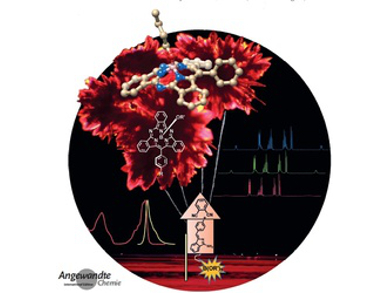In this issue, L. Jullien et al. review self-immolative spacers. How do they ensure the temporally tailored cleavage of two chemical bonds on activation for drug release? The Highlight by R. Mitra and K.-R. Pörschke deals with the chemistry and catalytic activity of organonickel(IV) compounds. J. A. C. Clyburne et al. comment on the crystallographic snapshot of an intermediate in the activation of CO2 discussed by G. S. McGrady et al. in issue 1.
In the Communications section, A. N. Cammidge et al. present a synthesis of meso-substituted subphthalocyanine–subporphyrine hybrids (see picture). J. Singh and J. B. Ugaonkar propose a model for prion protein misfolding. J. Dai and X. C. Zeng predict a titanium trisulfide monolayer to be a direct-gap semiconductor with ultrahigh electron mobility, and W. P. Unsworth et al. describe a direct access to spirocylic scaffolds.
- Angewandte Chemie 26/2015: Well Timed,
Angew. Chem. Int. Ed. 2015, 54 (26).



